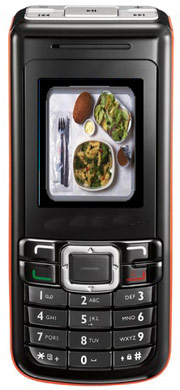
Carol Boushey, an associate professor in the Department of Foods and Nutrition, said that their research would expand on a technique already in use, by adding a strong scientific grounding.
Currently, dieters can subscribe to online sites that monitor eating habits by critiquing photos they send of their meals. The idea offers busy people the chance to get nutritional feedback without spending time writing down all of their meals, drinks and snacks.
“This idea of using cameras to evaluate your diet by snapping pictures of your meals is not a new one,” Boushey said.
“What makes our proposal different is that we’re designing the software to better evaluate portion sizes and nutritional content. Some of those online sites have sent messages to people advising them to stop drinking a soda when they were actually drinking tea. That will not happen here,” she added.
The study is expected to be undertaken for four years, and the research team will receive 452,000 dollars during the first year. It is being funded as part of a larger initiative, the Exposure Biology Program, from the National Institute of Environmental Health Sciences, a component of the National Institutes of Health.
The program focuses on technological developments that better assess exposures to environmental stressors, including chemical and biological agents, dietary intake, physical activity, psychosocial stress, and addictive substances.
Boushey, principal investigator of the work, has revealed that she will be providing the nutritional knowledge that will form the basis of the software’s food evaluations, and help determine possible health impacts.
“There is plenty of work for us to do. It’s going to be difficult to tell the difference between, say, lamb and a pork chop. There’s the difficulty of discerning between three cups and one cup in a photo,” she said.
She further said that evaluating food intake without the hassle of diet journals could impact American health.
“We’re committed to figuring out the details,” Boushey said.
“Diet is one of the most difficult exposures to measure in terms of how it contributes to disease. People are so confused about diet these days. We want to offer good advice to the public so they can stop throwing up their hands and saying, ‘I’m going to eat whatever I want,'” she added.
